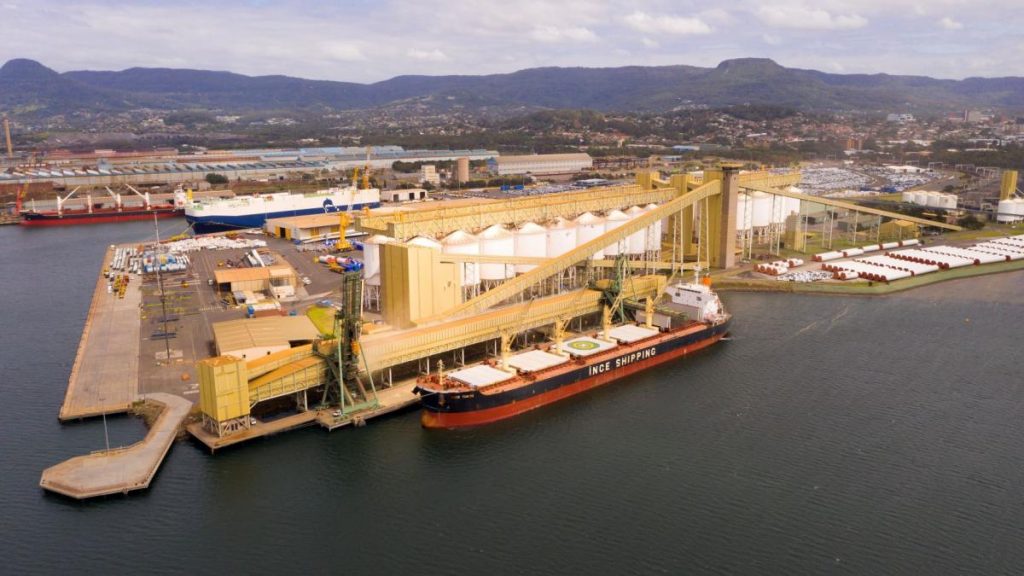Grain corridor concerns pressure Ukraine cpt market

Slowing operations through the grain export corridor and uncertainty over its renewal beyond November are pressuring Ukrainian cpt grain prices, with most producers and traders adopting a wait-and-see approach.
The Argus-assessed Ukraine spot 11.5pc wheat contract fell close to $212/t cpt on 14 October, down by $9/t from the start of October, and the respective corn contract posted a $5.50/t loss to $207.50/t, with both contracts implying delivery until the end of October.
Traders are offering even lower prices for spot deliveries covering early November, with the 11.5pc wheat grade for shipment to 10 November heard to have traded at $204/t cpt last week. This could be the result of buyers pricing in the risk of rerouting cargoes from seaports to small ports on the Dаnube River if ships do not arrive.
The Ukrainian cpt grain market broke its upward trend since late August, when traders resumed purchases at the Pivdennyi, Odessa and Chornomorsk (POC) ports, following the opening of the grain corridor under UN and Turkey-brokered deals separately with Ukraine and Russia on 22 July. Uncertainty over the sustainability of the export corridor is now weighing on the market, with the deal expiring in late November if it is not automatically renewed. This, coupled with slowing inspections of inbound and outbound vessels at Ukrainian ports, has increased the risk of exporters being unable to deliver grain to the global market by sea beyond November.
Shipments from the POC ports are being hampered by congestion in the Marmara Sea, with the number of ships awaiting inspection at the Joint Co-ordination Centre (JCC) outside Istanbul rising in recent weeks — at least 140 ships were stuck last week, according to market participants.
Inbound and outbound vessels to and from Ukrainian ports now need to wait for 15 days and more to pass the JCC inspection in Istanbul. And the outlook is deteriorating as the vessel line-up is large, while the centre has not yet started to check ships chartered for October entry, market participants said.
This has resulted in exporters accumulating large grain stocks at ports, with most terminal storage full and sites suspending the acceptance of new deliveries. This also forced most traders to suspend spot grain purchases, with only limited bids at lower levels heard in the local cpt market in recent weeks.
Ukrainian infrastructure minister Oleksandr Kubrakov on 16 October said he had no doubt that the grain corridor operation will be extended after 22 November, but the Russian side’s position is still unclear. President Vladimir Putin on 14 October said the country may not extend the Black Sea grain corridor deal if it is 100pc proven that the corridor is being used for “terrorism” against Russia.
These uncertainties have resulted in most buyers stepping away from the cpt market. “We have already stopped grain purchases at seaports, as we do not want to be stuck with obligations to farmers on the one hand, and inability to export from Ukrainian ports on the other hand if the corridor closes. But we are still ready to buy Ukrainian grains with delivery to Constanta or Gdansk,” a trader from one of the largest multinational companies told Argus.
Those companies that continue to buy grain on a cpt POC basis call it “operating on a knife edge”. They request that farmers deliver cargoes to ports a month to two weeks before the grain corridor deal expires, relying on the arrival of the ships that are stuck in the Marmara Sea. “I do not know exactly when the ship that we chartered arrives for loading and when it leaves the port. The last statements by Ukrainian officials are giving hope that the grain corridor will be prolonged, but we cannot take the risks if the opposite happens,” a trader at another multinational company told Argus.
Ukrainian farmers are also cautious about making new deals on a cpt POC basis, after some of them faced unpaid deliveries following the blockade of Ukrainian seaports earlier this year. The latest blackouts in Ukraine, caused by Russian missile and drone attacks, are also giving them pause over making deals for limited delivery periods, coupled with decreasing prices.
“Our company treats its obligations very responsibly and we cannot guarantee that cargoes will be delivered in time. We have already faced the situation, when we were not able to even load railway cars because of a power outage in the storage,” a trader at a Ukrainian agricultural holding said.
As a result, farmers — primarily in regions located far from ports — have adopted a wait-and-see approach. “If the grain corridor is extended, we will consider grain deals for delivery to seaports. If not, we will have to switch to grain deliveries to the western border of Ukraine,” the trader said.
Read also
Wheat in Southern Brazil Impacted by Dry Weather and Frosts
Oilseed Industry. Leaders and Strategies in the Times of a Great Change
Black Sea & Danube Region: Oilseed and Vegoil Markets Within Ongoing Transfor...
Serbia. The drought will cause extremely high losses for farmers this year
2023/24 Safrinha Corn in Brazil 91% Harvested
Write to us
Our manager will contact you soon



